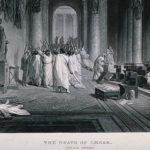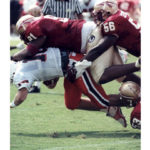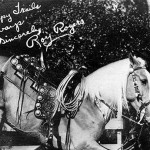In an effort to clarify over 20 years of conflicting precedent, the Texas Supreme Court announced five rules that, according to the court, explain the relationship between claims for breach of insurance policy and extra-contractual claims for bad faith and violations of the Texas Insurance Code. USAA Texas Lloyds Co. v. Menchaca, No. 14-0721, slip op. at 6 (Tex. April 7, 2017). Although an insurance policy is an agreement between the parties that is generally governed by ... Keep Reading »
Homeowners
Unlike Friendships, Policy Exclusions Are Not Severable In West Virginia
A homeowners insurance policy often covers every member of a family, and many policies state that the insurance applies separately to each insured. The same policies usually exclude coverage for intentional acts. But what happens when one insured is accused of negligently permitting a different, separately-covered family member to cause harm intentionally? Last month, in American National Property & Casualty Company v. Clendenen, No. 16-0290 (W. Va. Nov. 17, 2016), ... Keep Reading »
Florida Supreme Court Decides that Concurrent Causes Equal Coverage
It’s said that “defeat is an orphan,” but insurable losses often have multiple, concurrent causes. In some cases, one or more of those causes might be outside the scope of coverage, either by omission or exclusion. In Sebo v. American Home Assurance Company, No. SC14-897 (Fla. Dec. 1, 2016), the Supreme Court of Florida ruled that if damage results from “concurrent causes” and, as between the concurrent causes, an “efficient proximate cause” cannot be determined, it is ... Keep Reading »
Washington Court Finds Coverage For “Collapse” Is Not Set In Stone
As this blog has documented, the language of insurance policies evolves; it changes to address new risks, and it also responds to new interpretations of old policy provisions. Even if a policyholder maintains a long-standing relationship with a single carrier, the availability of coverage might turn on whether the loss occurred in a particular policy term. Property coverage for “collapse” provides an example of this development. After a number of courts found that the ... Keep Reading »
After Pit Bull Case, Questions Dog New York’s “Unfortunate Event” Test
Where an insurance policy contains a “per occurrence” limit on coverage, New York courts apply what they call the “unfortunate event” test to determine how many “occurrences” are involved in a given claim or set of claims. The test does not apply at all, however, where the policy language indicates “an intent to aggregate separate incidents into a single occurrence.” As this blog recently discussed, the U.S. Court of Appeals for the Second Circuit ruled in September ... Keep Reading »
In Overhead and Profit Class Actions, The Third Trade’s No Longer The Charm
When repairs to a damaged home reach a certain level of complexity, they call for supervision by a general contractor, who receives a percentage of the actual repair costs as "general contractor's overhead and profit" or "GCOP." Under "replacement cost" policies, insurers must pay GCOP for appropriate claims, even if the insured chooses not to use a contractor or elects not to make repairs. In the past, this obligation has been the subject of class action suits, in ... Keep Reading »
Florida Appellate Court Rejects Bid to Curb Insureds’ Assignments to Contractors
Many property insurance policies contain terms that prohibit assignment, but Florida law has long deemed those terms inoperative once a loss has occurred. E.g., W. Fla. Grocery Co. v. Teutonia Fire Ins. Co., 74 Fla. 220 (Fla. 1917). As a result, contractors who repair or remediate damaged property increasingly offer to accept assignments from policyholders in lieu of payment—a practice that gives them greater leverage in setting prices, because it enables them to back ... Keep Reading »
The Eleventh Circuit Holds that for Sinkhole Losses, Structural Damage ≠ Any Damage to a Structure
The land in Florida is prone to sinking and insurance companies must often scramble for solid footing on which to anchor the scope of coverage for sinkhole losses. In Hegel v. First Liberty Insurance Corporation (11th Cir. Feb. 27, 2015), the Eleventh Circuit provided some much needed guidance when it held that the plain meaning of "structural damage" in a homeowners policy cannot be simply "damage to the structure" in the context of determining coverage for a sinkhole ... Keep Reading »
No Manifestation Destiny: The Seventh Circuit Declines to Set a Standard Trigger Rule for First-Party Property Policies
When I ... feel my finger on your trigger, I know no one can do me no harm." - John Lennon Property damage can be sudden and dramatic, but it can also be subtle and insidious, and that can make it hard to identify the moment when properly coverage is implicated. As a result, courts have recognized several different "triggers," depending on the circumstances of the loss and the type of coverage involved. In November 2014, in Strauss v. Chubb Indemnity Insurance ... Keep Reading »
Ask the Experts About Bad Faith; Just Be Careful How You Do It
In bad faith cases, juries must often decide if the way an insurer processed a claim lacked a "reasonable" basis. Courts have consistently held that experts can help—by explaining how a claim is supposed to be handled. The same courts also insist, however, that experts may not "tell the jury what result to reach." Three recent cases from an assortment of federal courts enforced that rule by excluding expert opinions. But the real lesson of these cases might be that ... Keep Reading »









